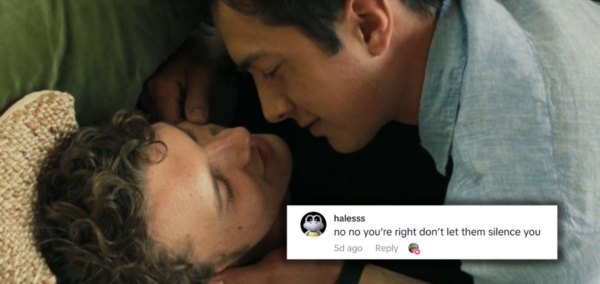
Edinburgh final years could be graduating without having dissertations marked amid lecturer strikes
‘It smacks of vindictiveness’
Dissertations written by final year undergraduate students at Edinburgh University could go unmarked due to strike action, according to plans unveiled by the university.
The University and College Union (UCU) has been engaged in a continuous nationwide marking and assessment boycott since 20 April. UCU members are being encouraged to refuse to mark any work submitted by students as part of a dispute over pay, working conditions and pensions.
The University of Edinburgh told The Tab that in response it intends to introduce “a range of temporary variations to provide greater flexibility to marking assessments”, including making final year students graduate even if their assessments, including dissertations, have not been marked.
The plans are not yet finalised, and depend on the outcome of negotiations between national-level university employers and the UCU.
Students in all year groups would be affected by the university’s decision, with decisions about progression to the next year of study or graduation based on a small selection of work submitted before the boycott began.
Students and staff at Edinburgh have expressed outrage at the proposals which could see extensive research undertaken by students go untouched.
Some courses have coursework deadlines and exams in the coming weeks, meaning students who are currently revising or completing assessments do not know whether these will be marked at all.
Nearly 500 lecturers at the university have signed an open letter saying they are “dismayed and alarmed” at the response to the boycott.
“We are especially troubled by the impact on final year undergraduates, who may find a large proportion of their honours assignments do not contribute to their final degree classification. For some, this includes their dissertation, which ought to be the capstone of their degree”, it reads.
Most Read
Fraser MacDonald, a Lecturer in geography, explained his decision to sign the letter: “It seems as if they’d rather relax examination standards – devaluing the degrees of 2023 graduates – if it helps management pay staff less.
“They have miscalculated here. Corporate tactics won’t prevail because the university ultimately depends on collegiality and reputation and you can’t disregard both without there being consequences”.
I am one of 479 staff members @edinburghuni to sign an open letter in protest at the university’s response to the marking and assessment boycott. These proposals threaten to undermine the integrity of our degrees. Our students deserve better. pic.twitter.com/7FzdIZ6aR8
— David Farrier (@David_Farrier) May 9, 2023
‘It’s maddening to think this can be allowed’ – final year student
Amy*, a fourth year student, has spoken of her concerns about the university’s response to the boycott: “It’s completely unfair that a whole year’s worth of work was for nothing. Especially for those of us who were on years abroad, our dissertations are one third of our grade, and now our whole degree could be based on two or three assignments.
“I’m finding it impossible to apply for jobs for next year without the faintest idea of what my grade will be”, she said.
Many students pin the blame on university leaders. Jamie*, a third year geography student, told The Tab that “it feels like the university is leaving the strike response to us at this point—expecting our outrage over this to be the thing that changes it”.
Students intending to study abroad in 2023-24 must meet academic criteria to do so, however, it is not clear whether these will change with the university’s plans. “I’m pretty confident in myself as it stands but I know lots of people on my course who are really uncertain, and may have to retake their second year without any notice” in order to meet the standard for studying aborad, one second year politics student said.
Despite this, some have expressed anger towards striking staff: “At this point, I do not see the strikes having an effect on anyone except the students, who are equally powerless. This is why I cannot see an alliance with teachers and students; instead, I see a betray of trust and respect”, one student told The Tab.
Those graduating in 2023 have been hit by a number of disruptions, including UCU industrial action affecting classes since 2018, the Covid-19 pandemic, and now face the prospect of major assessments going unmarked.
Non-Scottish UK students studying in Edinburgh will have paid at least £37,000 in tuition fees during the last four years, with the figure rising to nearly £80,000 for international students. Scots receive free university education due to the devolution of education policy north of the border.
‘I deeply apologise’ – striking tutor
Staff at Edinburgh have told The Tab of their anger at the university’s response to the boycott.
Dr Claire Duncanson, a Senior Lecturer in International Relations, said: “It seems that in order to avoid paying staff fairly, university management would rather risk the quality of degrees. It smacks of vindictiveness towards staff, and a cavalier attitude towards students.
“With £2.1 billion in reserves it’s well within universities’ power to pay staff fairly and bring the marking boycott to an end”, she continues.
Ricardo Ribeiro Ferreira, a PhD researcher and tutor at the School of Social and Political Science, has explained the reasons why staff are taking industrial action on this scale. Tutors on Guaranteed Hours contracts are not paid to assist students outside of class and are only paid for one hour of preparation for each teaching session.
“Many tutors are behind their rent payments and may face eviction, myself included. We get two or three extra jobs to compensate, impacting the teaching and marking quality.
“Everybody knows that most tutors work for free for at least 20 hours per week to deliver the quality of teaching and marking students deserve”, he added.
In December, it was revealed that Edinburgh University students were being left without any academic assistance during critical assessment periods due to these working conditions.
🗞️Rather than pay staff properly and resolve our dispute, @EdinburghUni is ripping up its academic processes and devaluing degrees
University bosses proving yet again they don't care about staff or studentshttps://t.co/7QENPLrnua#ucuRISING @ucuedinburgh
— UCU (@ucu) May 10, 2023
UCU Edinburgh told The Tab that “in not putting a meaningful offer on the table, HE employers have shown how little they actually value those who work and study in our sector.
“Using an approach designed in response to COVID as a precedent for taking this extreme form of action is a cynical move. This is an attack on both students and staff and we will not be divided”, said Grant Buttars, the branch communications officer.
Only those taught by members of staff who have chosen to engage in the UCU action will be impacted. While staff who teach subjects including History and Politics regularly strike, many in Law, Business and others do not. It is unknown how many staff are taking part in the boycott.
Real Talk: there are things happening at the University of Edinburgh that really need public scrutiny.
Things are bad for staff. But they’re *appalling* for students, especially for the 2023 graduating cohort who have suffered the most from the pandemic.🧵
— Fraser MacDonald (@JAFMacDonald) May 9, 2023
The plans were discussed at a meeting of Edinburgh University’s Senatus Academic Policy and Regulations Committee last week. They state that if students have passed at least two-thirds of all their courses and achieved at least 40 percent in each, they will graduate or proceed to the next year of study.
Exact marks will be decided “on aggregate for the courses affected by industrial action”, although it is unclear what such a process would entail.
In addition, the university is proposing that exam boards, which ratify each student’s final degree outcome, will take place with only two internal examiners, where a third external individual would usually be present for continuity and fairness purposes.
External examiners, who work at other universities, have chosen to strike in solidarity with Edinburgh’s staff, The Tab understands.
A spokesperson for the University of Edinburgh said: “The University has robust measures in place to reduce the impact of industrial action and we are making every effort to provide results, degree award outcomes and progression decisions to students by the published timelines.
“The marking and assessment boycott is part of a national campaign. Additional measures are being implemented across higher education institutions to ensure students’ ability to learn, progress and graduate is not compromised, while maintaining academic standards.
“The University’s Senate Academic Policy and Regulations Committee has agreed a range of temporary variations to provide greater flexibility to marking assessments and consider the ways industrial action has impacted learning, teaching and assessment. These are accompanied by conditions of use to ensure that academic standards are not compromised. Such variations will only be used in the event that activities have been significantly disrupted by industrial action and only when it is not possible to mitigate this using existing provisions of regulations and policies”.
A spokesperson for the Edinburgh branch of the UCU said: “In not putting a meaningful offer on the table, HE employers have shown how little they actually value those who work and study in our sector. University of Edinburgh’s decision to undermine the integrity of the assessment process shows that they are choosing to perpetuate and exacerbate the problems that have given rise to our dispute rather than use their weight in the sector to push for a solution.
“Using an approach designed in response to COVID as a precedent for taking this extreme form of action is a cynical move. This is an attack on both students and staff and we will not be divided. This dispute will be resolved when there is something meaningful on the table, not just some vague promises of jam tomorrow.
“The University of Edinburgh has a duty of care to students and staff. It’s time for them to deliver on that”.
*Names have been changed for anonymity.
Related stories recommended by this writer:
• Edinburgh Students’ Union forced to clarify renovation plans after backlash
• Second screening of ‘transphobic’ film cancelled due to protests at Edinburgh University

















